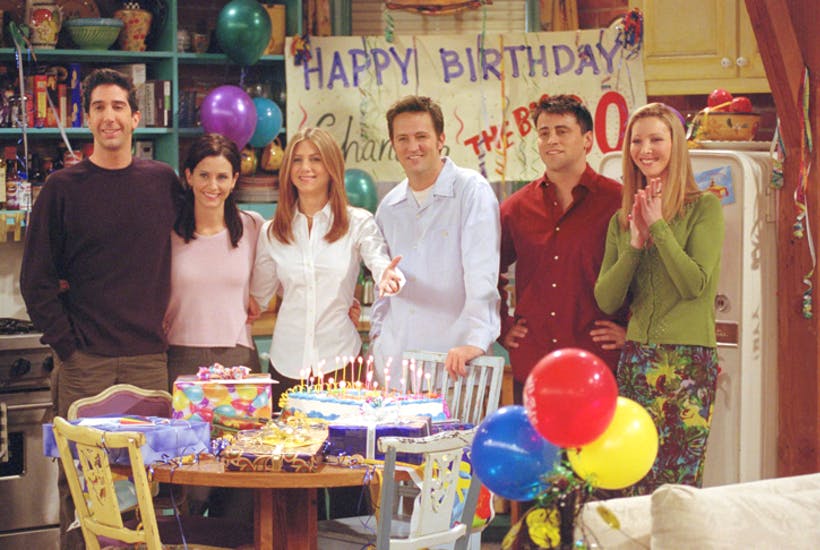A controversy has erupted in Folkestone over a forthcoming screening of Zulu, the classic British war film. A charity has arranged to show the film at the Silver Screen Cinema on Saturday to raise money for members of the armed forces and their families, but the event may have to be cancelled following a letter to the town’s mayor signed by 28 locals objecting to Zulu’s ‘racist overtones’. ‘The film glorifies the myth that was created in 1879 after the humiliation of the British military defeat at the battle of Isandlwana,’ they write. ‘The Battle of Rorke’s Drift was, in reality, little more than a footnote after a far more important and far more gory battle earlier in the day, 11 miles away at Isandlwana.’
The Folkestone letter writers may not know it, but they are part of a growing movement to cleanse popular culture of its politically incorrect content. It is known as ‘the awokening’. In America, numerous films and TV programmes have been criticised for being insufficiently ‘woke’ — that is, failing to advertise their awareness of the systematic biases and challenges facing marginalised communities. I’m not talking about The Birth of a Nation, D.W. Griffith’s silent epic which has long been condemned for its sympathetic portrayal of the Ku Klux Klan, but much more recent fare, such as Friends. The long-running 1990s sitcom is now considered ‘problematic’ — woke-speak for ‘completely unacceptable’ — because, among other things, it poked fun at one of its characters for being an overweight adolescent. That falls under the banner of ‘fat shaming’, one of the deadliest sins in the woke decalogue.
Another example: Sex and the City. In the eyes of one critic, the four main protagonists are ‘largely oblivious to their own privilege as rich cisgender white women with enviable careers living in super-desirable Manhattan apartments’. To rectify this, a Twitter meme has been created called ‘#Woke-Charlotte’ in which one of the characters pops up to scold the others whenever they say anything ‘troubling’ or ‘not OK’. For instance, when Carrie describes bisexuality as ‘a lay-over on the way to Gay Town’, Woke Charlotte is immediately on hand to admonish her. ‘Bisexuality is a real sexual orientation,’ she says. ‘It’s not “just a phase” and as a sex columnist you have a responsibility to educate yourself on queer issues.’
But it isn’t just the pop culture of yesteryear that is targeted by woke crusaders. Last year, a 35-year-old Indian-American comedian named Hari Kondabolu criticised the makers of The Simpsons for trafficking in ‘soft racism’ in the form of Apu, the eager-to-please, south Asian convenience store owner. Kondabolu set out his argument in a documentary called The Problem With Apu, and the writers of the show responded in an episode entitled ‘No Good Read Goes Unpunished’ that includes a scene in which Marge reads Lisa an updated edition of a book she loved as a child but which has been rewritten to expunge its ‘racist stereotypes’. Lisa is bored by the new version and tells Marge the authors should have left the book as it was. ‘Something that started decades ago and was applauded and inoffensive is now politically incorrect,’ she says. ‘What can you do?’
Lisa’s dismissal of Kondabolu’s attack on the grounds that it’s applying today’s moral standards to cultural touchstones of the past is right, I think. Regardless of whether you share the identity politics of the woke critics — and I don’t, obviously — it is nonsensical to condemn the creators of popular entertainment in the past for not being sufficiently aware of our present-day sensitivities. To go further and suggest that certain films and TV programmes should no longer be shown on the grounds that they might cause offence is ridiculously censorious. It rests on the assumption that exposure to this ‘problematic’ material is somehow harmful to contemporary audiences.
In reality, no one is so fragile that they’re likely to be ‘triggered’ by a 1960s film or 1990s sitcom. My 14-year-old daughter and 13-year-old son spend hours watching Friends, in spite of being considerably more woke than their father. Like most people, they’re perfectly capable of placing the series in its historical context and enjoying it without approving of it in every particular. They don’t need protecting from its fat-shaming scenes any more than the resident of a Kent seaside town do from the ‘racist overtones’ of Zulu. Let’s hope the mayor of Folkestone is as robust in his response to these modern-day Mary Whitehouses as Lisa Simpson.







Comments